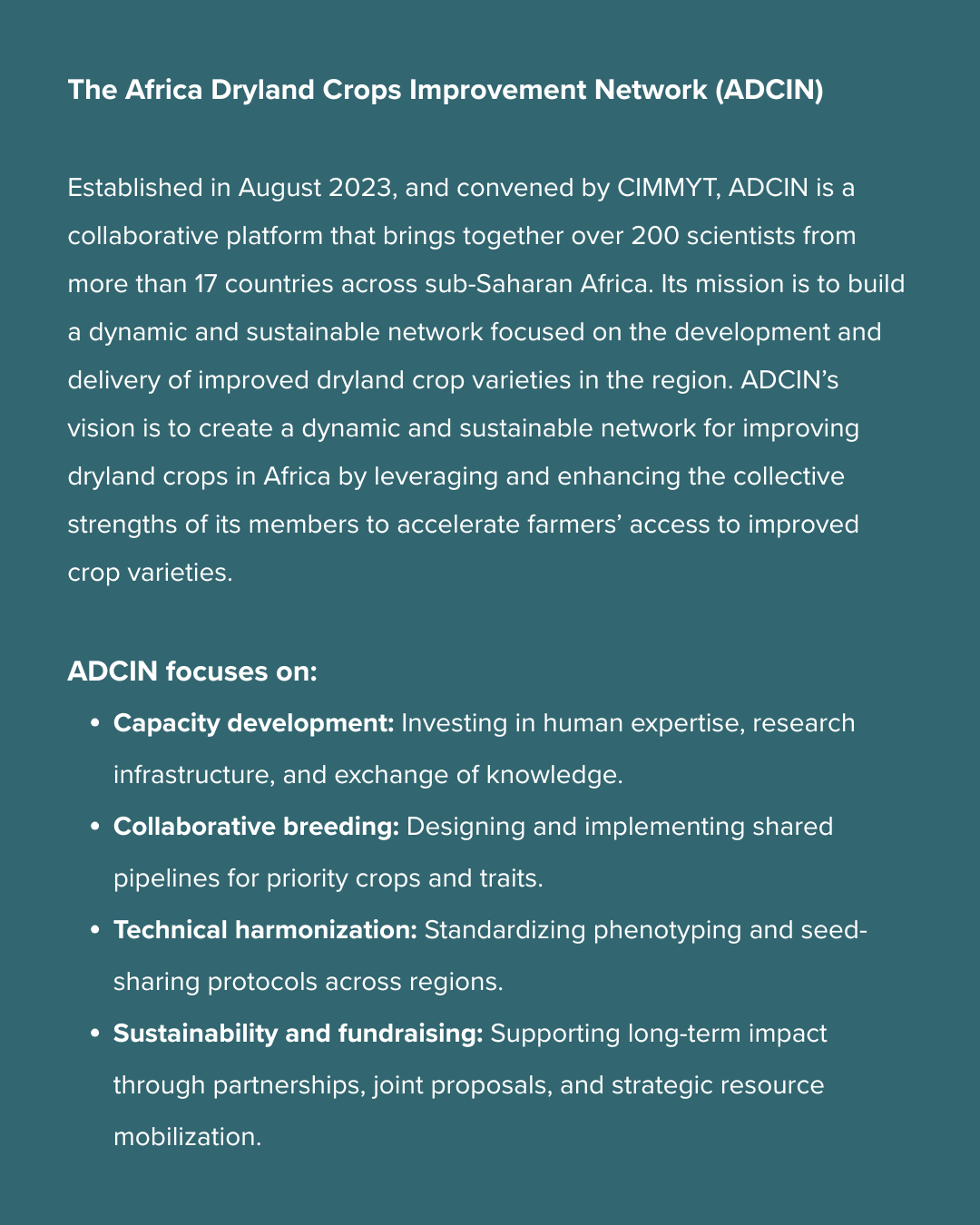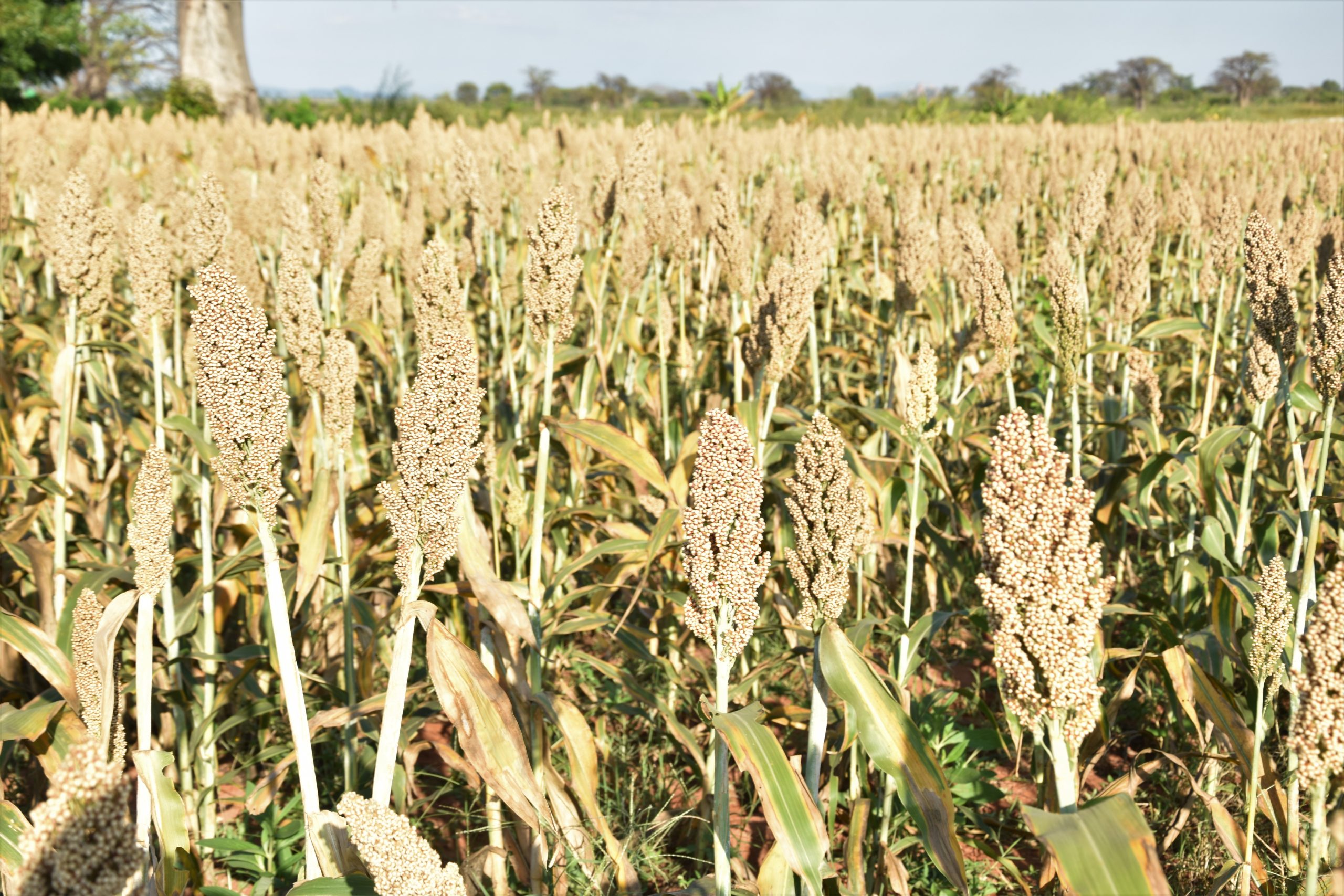The Dryland Crops Program (DCP) contributes to CIMMYT’s 2030 Strategy to apply science and innovation for a food and nutrition secure world.
DCP is motivated by the 50:20 Challenge—tackling the reality that over 50% of households in sub-Saharan Africa are food insecure, while only 20% of crop area is planted with improved varieties. DCP strives to reshape dryland agriculture through innovation and partnerships.
Crops and cropping systems that matter
Our focus is on staple dryland crops and their cropping systems that are vital for nutrition, income, and climate resilience: sorghum, millets (pearl and finger), groundnut, pigeon pea and chickpea.
Our Vision
We envision and contribute to: Effective regional crop improvement networks sustainably develop new crop varieties that benefit farmers, consumers, and other value chain actors through proven and innovative impact pathways.
Our Approach
- Co-create: Partners and stakeholders jointly identify market segments and define target product profiles at country and regional levels.
- Co-design: Breeding pipelines for priority market segments are collaboratively designed with partners. Co-design builds ownership and cross-learning.
- Co-develop: Breeding pipelines, from new population development through testing and hand-over to seed systems specialists, are shared among CGIAR and NARES partners. Co-development builds network resilience and strategic capacity.
- Co-advance: Breeding informatics are applied for data-driven decision-making; application of improved marker panels, reference and pangenomes; genomic selection; and sparse testing to increase rates of genetic gain in the development of new dryland crop varieties.
- Co-innovate: Regional capacity in plant pathology has been strengthened through widespread plant health phenotyping to guide breeding and product development. For the first time, routine marker applications have been integrated into shared CGIAR-NARES breeding pipelines. Trait Champs, from partner institutions, are leading discovery and pre-breeding efforts for network-prioritized biotic stresses.
Strengthening capacity and partnerships
DCP’s commitment to building scientific and institutional capacity is exemplified by:
- The CIMMYT Adjunct Scientist Program, linking NARES researchers with CIMMYT-led teams for mutual learning and applied research
- Trait Champs, NARES scientists leading network discovery and pre-breeding efforts for key traits
- A growing network of shared breeding pipelines and regional testing centers to enhance genetic gain and accelerate varietal turnover
- Convener and member of the Africa Dryland Crops Improvement Network (ADCIN) – see box

Our desired legacy: A lasting impact
- Increased resilience, productivity and income of farmers: Resilient, sustainable, livelihood-enhancing varieties and cropping systems.
- Enhanced capacity of NARES to achieve sustainable on-farm genetic gains: Strengthened NARES programs.
- Sustainable CGIAR/NARES networks: We are a partner of choice for the networks (farmers, NARES, funders, private sector).
- Sustainable and timely access to dryland crops’ quality seed; increased variety turnover.
- DCP and ADCIN become models for CGIAR and others pursuing a similar vision: Supporting capacity development of NARES to sustain success; validating and implementing innovative impact pathways and strategies to benefit resource-poor farmers.

 Dryland Crops, Innovations,
Dryland Crops, Innovations,